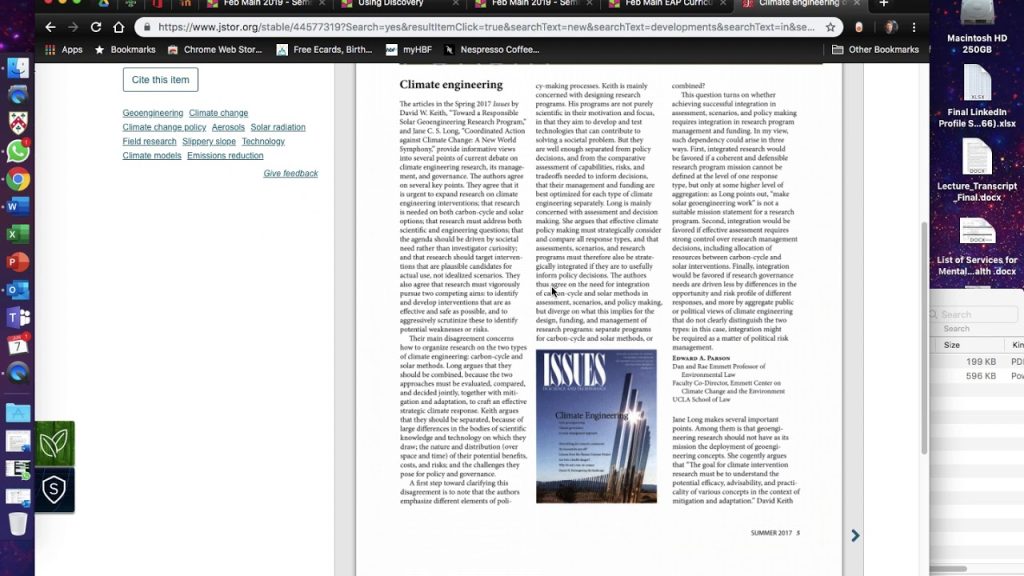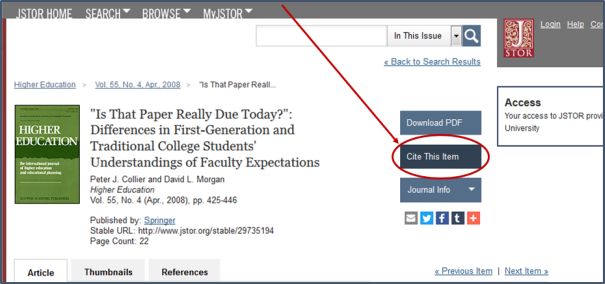JSTOR is a comprehensive digital library that provides access to a vast collection of academic journals, books, and primary sources across a wide range of disciplines. Launched in 1997, JSTOR has become an indispensable resource for researchers, students, and scholars worldwide, offering a seamless way to discover, access, and utilize scholarly content.

Table of Contents
The Importance of JSTOR for Academic Research
JSTOR plays a crucial role in the world of academic research by serving as a centralized hub for high-quality, peer-reviewed content. It allows researchers to delve into a vast trove of information, spanning fields such as the humanities, social sciences, sciences, and more. By providing easy access to these resources, JSTOR facilitates in-depth analysis, critical thinking, and the advancement of knowledge.
Target Audience for JSTOR
JSTOR caters primarily to the academic community, including students, professors, researchers, and librarians. Its comprehensive collection and advanced search capabilities make it an invaluable tool for those engaged in scholarly pursuits, from undergraduate students conducting research for assignments to seasoned academics publishing groundbreaking studies.
Key Features and Benefits
Comprehensive Digital Library: Access to Millions of Articles
At the heart of JSTOR is its expansive digital library, which houses millions of scholarly articles, books, and primary sources. Covering a vast array of academic disciplines, this collection provides users with a wealth of information to explore, enabling them to delve deep into their areas of interest and uncover new insights.
Advanced Search Capabilities: Finding Relevant Content
JSTOR offers robust search functionalities that allow users to quickly and effectively locate relevant content. With the ability to search by keyword, author, publication, or even citation, researchers can easily find the resources they need to support their work. Additionally, advanced search features, such as Boolean operators and filters, further refine the results, ensuring users can hone in on the most relevant information.
Full-Text Articles: Reading Articles in Their Entirety
Unlike many databases that only provide abstracts or excerpts, JSTOR gives users access to the full-text of its scholarly articles. This allows researchers to thoroughly engage with the content, gaining a deeper understanding of the arguments, methodologies, and findings presented in the literature.

Citation Export: Creating Citations in Various Formats
JSTOR simplifies the citation process by providing users with the ability to export citations in a variety of standard formats, such as APA, MLA, and Chicago Style. This feature helps researchers maintain accurate and consistent bibliographies, ensuring their work adheres to the required academic conventions.
PDF Downloads: Saving Articles for Offline Reading
JSTOR enables users to download PDF versions of articles, allowing for offline reading and reference. This feature is particularly useful for researchers who need to access content while traveling or when an internet connection is unavailable.
How to Use JSTOR Effectively
Basic Search Techniques: Keyword and Phrase Searching
The foundation of effective JSTOR usage lies in the ability to conduct basic searches. Users can search for specific keywords or phrases, which will return a list of relevant articles, books, and other resources. This straightforward approach is often the starting point for many researchers.
Advanced Search Tips and Tricks: Using Boolean Operators and Filters
To refine their searches and hone in on the most relevant content, users can leverage JSTOR’s advanced search capabilities. By employing Boolean operators (such as AND, OR, and NOT) and applying various filters (e.g., by publication date, author, or subject), researchers can significantly narrow down the results and find the information that best aligns with their research needs.
Customizing Your JSTOR Experience
JSTOR allows users to personalize their experience by creating a free account. This enables them to save searches, set up alerts for new content, and access additional features, such as the ability to create a personal library of saved articles and resources.
Understanding JSTOR’s Collections
Academic Journals
At the core of JSTOR’s digital library are academic journals, covering a vast array of disciplines, from the humanities and social sciences to the natural and applied sciences. These peer-reviewed publications provide users with access to the latest research, theories, and findings in their respective fields.
Books and Monographs
In addition to journal articles, JSTOR also houses a growing collection of scholarly books and monographs. These in-depth works offer comprehensive explorations of specific topics, providing users with a more extensive understanding of the subject matter.
Primary Sources
JSTOR goes beyond just scholarly publications and includes a wealth of primary sources, such as historical documents, artifacts, and archival materials. These primary sources offer researchers valuable insights into the past, allowing them to engage in deeper, more nuanced analyses.
Archives and Special Collections
JSTOR also provides access to specialized archives and collections, which offer unique and often rare content that can be invaluable for researchers in various fields. These include digital versions of physical collections, as well as born-digital materials that are not readily available elsewhere.

JSTOR and Academic Research
Identifying Reliable Sources
By providing access to a curated collection of peer-reviewed publications, JSTOR helps researchers identify reliable, high-quality sources for their academic work. This is crucial in ensuring the credibility and integrity of their research.
Citing Sources Accurately
JSTOR’s citation export functionality makes it easier for researchers to properly cite the sources they have used in their work, which is essential for maintaining academic integrity and avoiding plagiarism.
Avoiding Plagiarism
The comprehensive nature of JSTOR’s digital library and its advanced search capabilities enable researchers to thoroughly explore the existing literature, reducing the risk of inadvertently duplicating or misrepresenting previous work.
JSTOR and Student Research
Finding Relevant Research Papers
For students conducting research for their assignments, JSTOR serves as an invaluable resource for locating relevant, scholarly articles and publications that can support their arguments and analysis.
Writing Effective Research Papers
By accessing high-quality, in-depth content through JSTOR, students can enhance the quality of their research papers, ensuring that their work is well-informed, well-researched, and demonstrative of a deep understanding of the subject matter.
Using JSTOR for Assignments and Projects
Whether writing a term paper, preparing for a presentation, or completing a research-intensive project, students can leverage JSTOR’s comprehensive collection and advanced search tools to gather the necessary information and resources to excel in their academic pursuits.
Limitations of JSTOR
Potential Access Restrictions
While JSTOR aims to provide widespread access to its digital library, some content may be restricted or only available to users affiliated with certain institutions or organizations.
Cost of Access
For individuals not affiliated with a subscribing institution, accessing JSTOR’s full range of content may require a paid subscription, which can be a barrier for some users.
Not All Content is Available
While JSTOR’s collection is extensive, it does not encompass the entirety of scholarly literature. There may be some publications or resources that are not available through the platform.
Tips for Maximizing JSTOR
Effective Search Strategies
Developing proficiency in using JSTOR’s advanced search features, such as Boolean operators and filtering options, can significantly enhance the quality and relevance of the search results.
Utilizing JSTOR’s Advanced Features
Exploring the platform’s additional functionalities, such as creating personal accounts, setting up alerts, and managing saved resources, can help users streamline their research workflow and stay up-to-date with the latest developments in their fields of interest.

Staying Updated with JSTOR’s Changes
Regularly checking for updates and new features on the JSTOR platform can ensure that users are making the most of the platform’s evolving capabilities and taking advantage of its latest improvements.
Alternative Academic Databases
Comparing JSTOR to Other Databases
While JSTOR is a highly respected and widely used academic database, there are other platforms, such as Google Scholar, Web of Science, and Scopus, that offer similar or complementary resources and features. Users may find it beneficial to explore these alternative options to determine the best fit for their specific research needs.
Choosing the Right Database for Your Needs
The choice of academic database will often depend on the user’s field of study, the type of content they are seeking, and the specific features or functionalities they require. By understanding the strengths and limitations of various platforms, users can make an informed decision on which database(s) to utilize for their research endeavors.
Get Started With JSTOR
To start using JSTOR, users can visit the JSTOR website and click on the “Create Account” button in the top right corner. This will take them to the registration page, where they can enter their personal and institutional information to create a free account.
Once the account is set up, users can begin exploring the JSTOR platform, utilizing the various search and discovery tools to access the wealth of scholarly content available. They can also take advantage of additional features, such as saving articles, setting up alerts, and managing their personal library.
Frequently Asked Questions (FAQs)
Q: What is the difference between JSTOR and Google Scholar?
A: While both JSTOR and Google Scholar provide access to scholarly content, JSTOR is a curated digital library that focuses primarily on academic journals, books, and primary sources, whereas Google Scholar casts a wider net, including a broader range of publications and content types.
Q: Is JSTOR free to use?
A: The accessibility of JSTOR content varies. Many institutions, such as universities and colleges, provide free access to JSTOR for their affiliated users. However, for individuals not affiliated with a subscribing institution, accessing JSTOR’s full range of content may require a paid subscription.
Q: How do I access JSTOR resources if my institution doesn’t subscribe?
A: If your institution does not provide access to JSTOR, you may still be able to access some content through individual article purchases or by creating a personal account on the JSTOR platform. Additionally, you can explore alternative academic databases or visit your local library to access JSTOR resources.
Q: Can I download full-text articles from JSTOR?
A: Yes, JSTOR allows users to download PDF versions of full-text articles, which can be helpful for offline reading, research, and citation purposes.
Q: How do I properly cite sources from JSTOR in my research paper?
A: JSTOR provides citation tools that allow users to export references in various citation styles, such as APA, MLA, and Chicago. These formatted citations can then be incorporated into the user’s research paper or bibliography.

Conclusion
JSTOR is a powerful and comprehensive digital library that has become an essential resource for academic research across a wide range of disciplines. By providing access to millions of scholarly articles, books, and primary sources, JSTOR enables researchers, students, and academics to delve deeply into their areas of interest, discover new insights, and advance the frontiers of knowledge.
With its advanced search capabilities, citation management tools, and personalization features, JSTOR streamlines the research process, helping users effectively navigate the vast trove of information and focus on the most relevant and reliable content. Whether you are a seasoned academic or a student embarking on your first research project, JSTOR can be an invaluable tool in your academic journey.
If you are interested in exploring the wealth of resources available on JSTOR, we encourage you to visit the JSTOR website and create a free account to start your journey of discovery and scholarly exploration.




